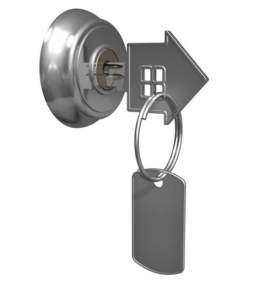
Eviction Process in Texas

Popular In Foreclosure
Deed In Lieu Of Foreclosure Stop Foreclosure Pre Foreclosure Protecting Tenants At Foreclosure Act Of 2009 Deed In Lieu Of Foreclosure Maryland Avoid Foreclosure Foreclosure Help Eviction Process In Missouri Eviction Process In Alabama Foreclosure Process Short Sale Deed In Lieu Of Foreclosure Ohio
If you are being evicted in the state of Texas, you may not know how to proceed. Learning about the eviction process in Texas can help you understand your rights and options under the law. After reading this guide, you will understand the steps involved in the eviction process in Texas and how long each step will take.
Getting Notice
Before your landlord can begin the eviction process in Texas courts, he or she must give you adequate and proper legal notice that you are in danger of being evicted. In many states, the amount of notice you must receive differs depending on the reason for the eviction, but in Texas, notice is simplified: regardless of why your landlord is asking you to leave, you will be given 3 days' notice (unless your lease specifies more time).
Your landlord may notify you that you can restore your tenancy by complying with your lease—for instance, by paying late rent or removing an illegal subletter. However, your landlord is under no obligation to give you this opportunity and can simply ask you to leave within 3 days or face eviction proceedings.
You must be given written notice, not just an oral warning, to vacate the premises. You can be served with this notice by your landlord or certified mail. During this three-day notice window, no legal proceedings can begin. Because of this, you may find that this is the best time during the eviction process in Texas to try to negotiate an agreement with your landlord. Once you are embroiled in a legal battle, it may be harder to negotiate a way to stay in your home.
Court Filings and Hearings
If you do not vacate your property within three days of receiving notice, your landlord can begin the eviction process in Texas courts. This process begins when your landlord files a petition with the court clerk.
You will be served by the constable with a copy of your landlord's petition, which includes the reason you are being evicted, as well as the citation, which tells you when your eviction hearing will take place. The eviction hearing allows you and your landlord to talk in front of a judge and tell your sides of the story.
You are not required to attend the hearing, but if you fail to appear, your landlord will win the case automatically and the eviction process in Texas will continue. If your landlord behaved improperly by giving you improper notice, retaliating or discriminating against you, or violating the terms of your lease, you may be able to win at the hearing. If you win, the eviction process in Texas comes to a stop and you may even be entitled to damages from your landlord.
Writ of Possession
If your landlord wins at the hearing, you will have five days to appeal. Once the appeal period has passed, if you are still living on the premises, your landlord can ask the court for a writ of possession to allow the sheriff to evict you forcibly. Forcible eviction is the final step in the eviction process in Texas, and it can only be done by a sheriff—never your landlord personally.



















